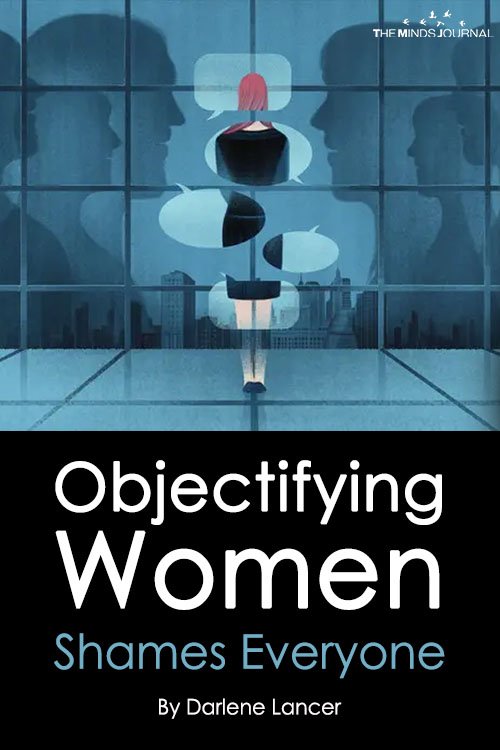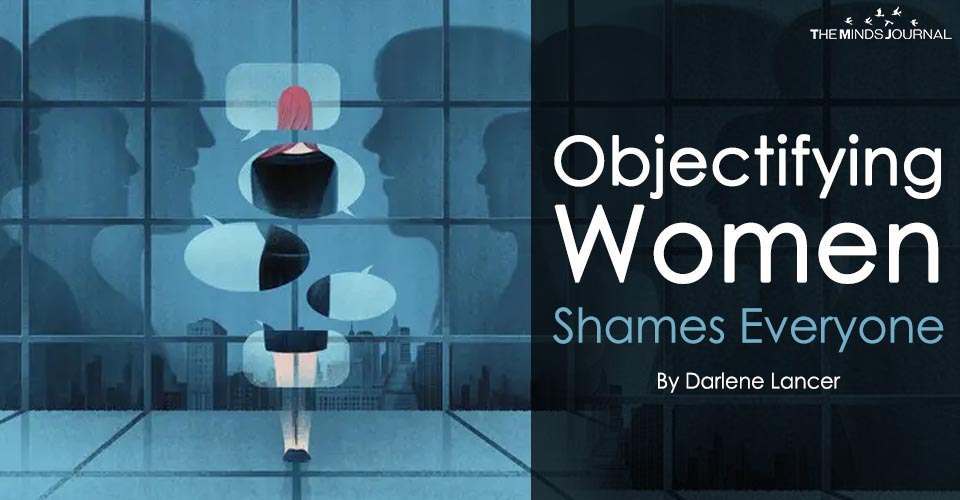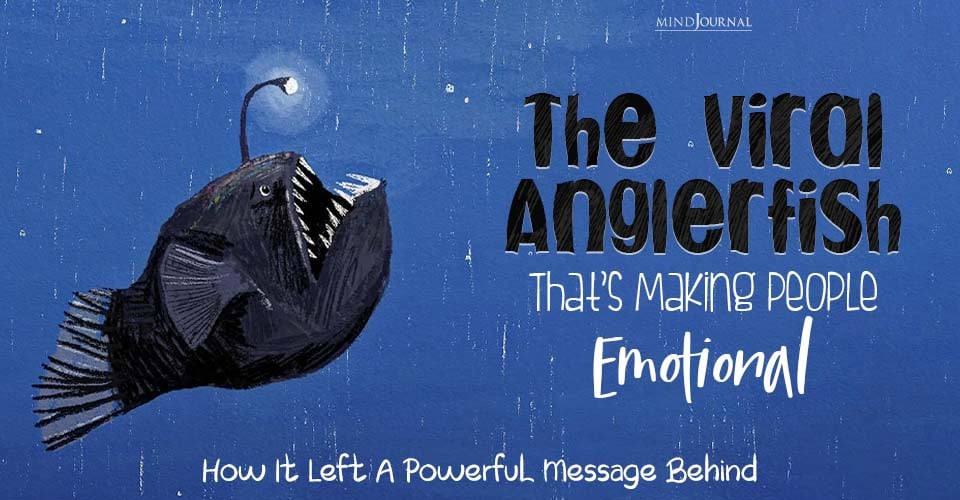Objectifying Women Shames Everyone
With the firings of executives, sentencing of Bill Cosby, and Supreme Court nomination hearings, accusations of sexual harassment and assault dominate the news. This behavior is driven by a deep-seated, abiding culture that objectifies women and damages both genders.
It perpetuates a cycle of shame in both men and women and encourages aggression against women. Even if never overtly harassed or assaulted, women experience the destructive effects of sexual objectification, including abuse and violence, eating disorders, body shame, depression, risky sexual behavior, and sexual dysfunction.
Men don’t realize how sexual shame also harms them. Sexuality brings abundant opportunities to exaggerate both our vulnerability and shame, to feel pleasure and close, but also to feel unworthy, unacceptable, and unlovable.
Shame and Manhood
Boys must separate from their mothers to establish their masculinity. To accomplish this task, they look to their father. They are also influenced by peers and cultural standards and role models to define what it is to be a man. Often, masculine ideals of toughness, success, and anti-femininity are promoted. This objectifies men to be other than themselves.
Hypermasculinity
Hypermasculinity objectifies and exaggerates stereotypical male behavior, such as an emphasis on physical strength, aggression, and sexuality. Masculine ideals of toughness, success, and anti-femininity or promoted. Objectifying maleness this way teaches boys to reject all feminine traits such as tenderness, compassion, and empathy. Many boys and men have had their emotions shamed in order to conform to the masculine ideal of toughness, creating homophobia around tender feelings. It puts pressure on men to measure up to these norms and simultaneously shames other parts of them. In a culture that encourages hypermasculinity, some fathers humiliate their sons by calling them “sissy,” or “Mama’s boy.”
I was invited as a therapist to attend a ropes course that challenged young teens at risk. The challenges were designed to be frightening–even to adults. Over my objections, one of the male leaders brutally shamed any boy who showed fear, and worse, tears. He traumatized the boy while re-enacting abuse he’d likely received growing up. This is how shame gets passed down.
Objectifying Women
Countless men are socialized by their fathers, brothers, and male peers to objectify, dominate, and degrade women. Objectifying men and women strengthen these male values and strains of male relationships with women. It’s reinforced through “girl watching,” promiscuity or competition among men to “score,” having a beautiful woman as a trophy, and addiction to pornography, especially if it involves male power over for females. (Elder, 2010) The popularity of violent porn is growing, and studies show that it contributes to pedophilia, misogyny, and violence against women. Hard porn is often the basis for male sex education. It normalizes male conquest, control, and dominance and promotes the fantasy that all women enjoy what men demand, including aggression, or that they can be easily coerced to. (Jensen, 2007) Teenage boys then believe that they can and should behave this way, but are disillusioned and disempowered when they discover reality differs. Power over the opposite gender is used to bolster male low self-esteem and deeply denied shame. But it comes at a price. Half of the men feel shame about their behavior toward women, leading them to question their worth and lovability as human beings. (Elder, 2010)
Impact on Boys and Men
Additionally, promoting hypermasculine ideals causes other problems. Shaming of emotions, the body, or normal needs and wants deeply wounds boys and men and can result in trauma, addiction, aggression, and codependency. (Lancer, 2014) Usually, this occurs in an environment of dysfunctional parenting, where shame, and often abuse, has already undermined boys’ developing sense of identity. Teaching boys to be hypermasculine and to disrespect women as equals encourage domination, emotional abuse, and violence. Showing fear, sadness, or any sign of vulnerability is often interpreted as weakness. First, vulnerability is judged by others, and then boys and men judge themselves. The emotional toll on men is never discussed, because it’s considered “weak” and shrouded in shame.
Children internalize judgmental messages as toxic shame and conclude that they’re flawed and unlovable. Without treatment, it can last a lifetime, negatively affecting self-esteem, sexual identity, and relationships. Some suffer silently, not knowing how to meet their parents’ expectations; others try harder to conform to masculine ideals. Many boys must play-act to be someone they’re not.
Adolescence often exposes them to humiliation during a period when openness and honesty aren’t allowed. They have to hide their feelings and natural instincts. They feel alienated from other boys and from their real selves. Some boys reject the tough, abusive role model their father represents, and as teens withdraw and have difficulty establishing their masculine identity. When boys and men have to defend their toughness and image, it further heightens their vulnerability to shame as well as their defensiveness. Some become bullies to compensate for insecurity. Like the counselor at the ropes course, they shame others or their own children when they become parents the same way they were shamed at home.
Read 5 Things Strong Women Hear But Will NEVER Tolerate
As adults, men hesitate to open up or share their feelings or seek help because of buried shame. Anxiety and depression result when teens and men can’t turn to others or professionals for support for their stressful feelings and unmet needs. Many try to manage their feelings with sex, gambling, drugs, or other self-destructive behavior, which becomes addictive and worsens their shame and depression.
Impact on Girls and Women
From an early age, many girls are objectified as objects for male attention and admiration. Their appearance becomes their primary value, rather than their internal worth and many other skills and attributes, such as intelligence, leadership, ingenuity, or creativity. Fathers may give daughters inappropriate looks or make sexual jokes or statements admiring or criticizing their bodies. Young girls who want their daddy to love them may not recognize this as invasive.
Due to cultural values or having been raised this way, often mothers pass this on to their daughters. Society places pressure on girls as young as nine, or earlier, to be beautiful and thin for others before girls are self-conscious of their looks and bodies. This compromises their self-esteem at an early age and promotes eating disorders. Some mothers doll up their toddlers with jewelry, hairdos, and nail polish, and not long after, makeup and an over-focus on thinness. The advertising media contributes to this image of women, ignoring their needs for autonomy, adventure, and intellectual pursuits. Girls that are naturally more “tomboys” are often shamed by their mothers to be different, just as sensitive boys are shamed as “sissies” by their fathers.
Shame can cause women to inhibit sexual pleasure and lose confidence in setting boundaries. It fosters the belief that their worth lies in their sexual attractiveness to men. They’re more likely to engage in promiscuity and risky sexual behavior, such as unprotected sex, loveless sex, or with disregard for STD’s. By being objectified, girls and women become disconnected from their internal guidance system. They’re more attuned to obeying or pleasing a man, ignoring their own feelings, making them unable to protect themselves physically and emotionally. In contrast, with healthy self-esteem, women experience increased sexual desire, confidence, orgasms, and pleasure. They’re able to ask for what they want directly to get their needs met.
Worse is sexual abuse, which leaves its victims feeling self-contempt, distrustful, dirty, damaged, and unlovable. The objectification of women and the invasion of their boundaries in a sexual assault is humiliating to women. Although their boundaries have been invaded, they take on the shame of the perpetrator. For centuries religion and culture have promoted their unwarranted shame.
If sexually aroused, pleasure and desire may be confused with the abuse and be shrouded in shame. They may become promiscuous or the opposite and deny themselves pleasure. Objectification leads a girl to wrongly confuse being desired sexually and being loved. They may partner with men who don’t love and respect them after the initial romance fades. They may not believe that they have a right to sexual equity, to sexual pleasure without guilt, to free sexual expression, and to sexual autonomy about their own bodies.
Shame and Intimacy
Men and women both seek connection and intimacy. But the expectations that shame generates breed insecurity. It makes us more vulnerable to shame and connection, and authenticity becomes more difficult. Real intimacy requires connection to our real selves. We have to be in touch with our vulnerability to express it. Even then, it can be too frightening and carries shame-anxiety. Instead of receiving nurturing and closeness, many men and some women separate love and sex and substitute sex for love to avoid the anxiety of intimacy. Sex is also used to allay anxiety, fill the emptiness, lift depressed feelings, and build identity and self-worth. But loveless sex sets the stage for impotence and depression later. Although both partners may be gratified sexually, they’re often not fulfilled, nor does their self-esteem benefit. It can potentially leave them with guilt, shame, low self-esteem, and feeling even emptier than before. Sex can become addictive since there is short term pleasure, but the emptiness is never filled.
Read 11 Reasons Why Women With Anxiety Are The Strongest
New partners must be found to ensure excitement and avoid intimacy. Affairs and sexual flirtation with someone outside of a committed relationship are often initiated to boost self-esteem, but deceit risk damaging the partner and the relationship, creating more shame. Over time in long relationships, sex may be divorced from all feelings and become machine-like, especially when any emotional connection has waned. It’s dehumanizing to both partners and their needs for real connection are never met. But emptiness is neither fillable from sex, nor from exerting power over others. Meanwhile, the gap between a person’s real self and the persona they believe they must project gets ever wider.
However, shame and psychological emptiness can heal with psychotherapy and self-love and compassion. (See Conquering Shame and Codependency: 8 Steps to Freeing the True You.)
©Darlene Lancer 2018
Written by Darlene Lancer JD, MFT










Leave a Reply